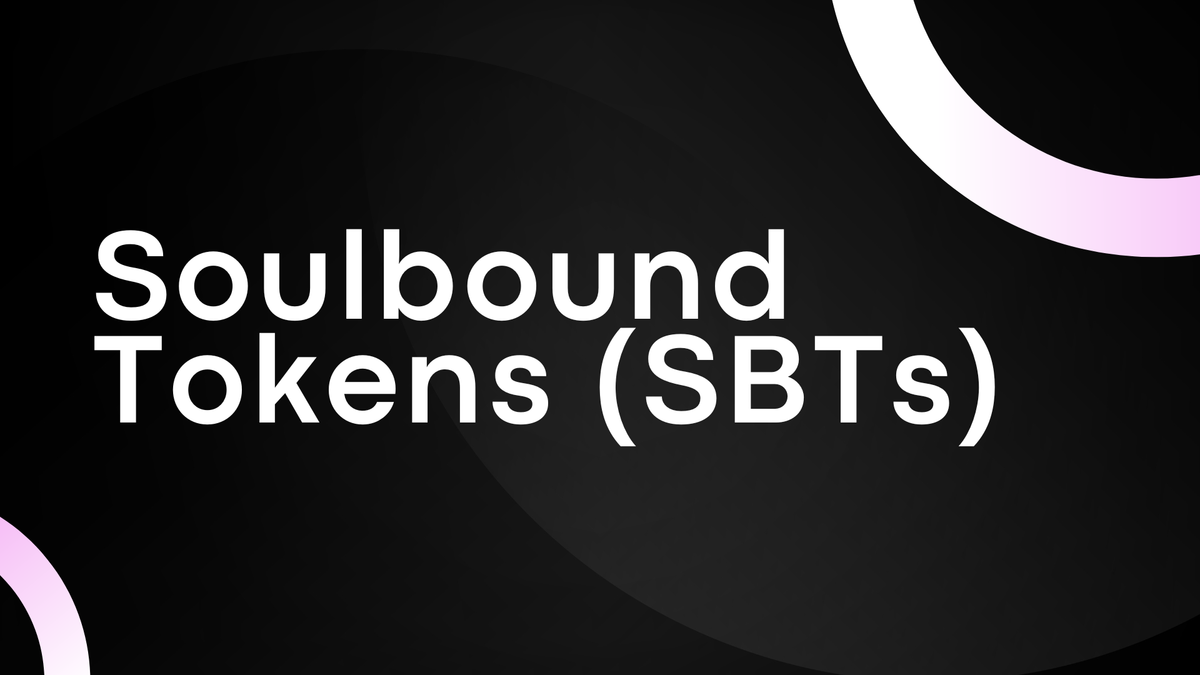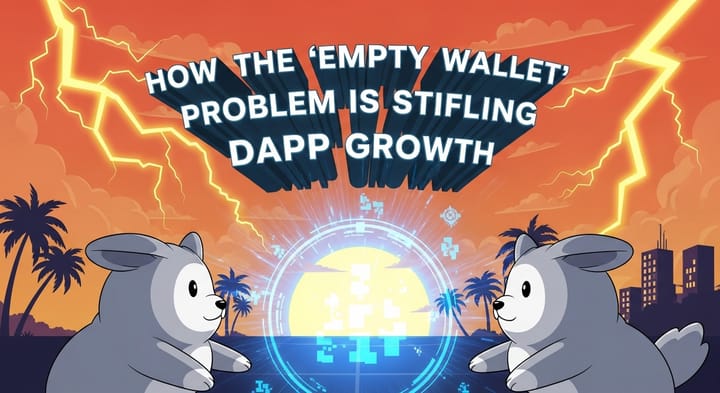Soulbound Tokens (SBTs): The Future of Digital Identity, Credentials, and Governance

Introduction
Digital identity today is fragmented across dozens of platforms, universities maintain academic records, governments hold civil registries, while decentralized communities rely on social media or Discord roles for reputation. Each system has gaps: certificates can be lost or counterfeited, centralized databases can be hacked or censored, and “proof” via social media is neither verifiable nor portable.
Soulbound Tokens (SBTs) aim to close these gaps by binding verifiable credentials permanently to a blockchain wallet, or “Soul,” making identity data:
- Immutable: Once issued, records cannot be altered or deleted.
- Non-transferable: Credentials remain with the original recipient.
- Portable: Users carry their credentials across platforms and applications.
This approach lays the groundwork for a decentralized society or “DeSoc”, where trust derives from cryptographic proof rather than centralized authorities.
The Origins of Soulbound Tokens
The concept of SBTs crystallized in May 2022 when Vitalik Buterin, lawyer Puja Ohlhaver, and economist E. Glen Weyl published the whitepaper “Decentralized Society: Finding Web3’s Soul” on GitHub. Drawing inspiration from soulbound items in video games like World of Warcraft, objects that become permanently linked to a character on pickup—the authors proposed:
“Soulbound Tokens (SBTs) are non-transferable tokens representing a person’s identity using blockchain technology. This could include medical records, work history, and any type of information that makes up a person or entity.”
Their vision centered on creating a fully decentralized society governed by user-issued, verifiable credentials rather than by token-based economic power alone. Learn more in the original whitepaper on GitHub.
What Are SBTs? How Do They Work?
At its core, an SBT is a specialized non-fungible token (NFT) with three defining attributes:
- Soul: A blockchain account or wallet that holds or issues SBTs. Individuals, institutions, and even DAOs can all have Souls.
- Non-transferable: Unlike traditional NFTs, SBTs cannot be sent or traded to another wallet once issued.
- Verifiable Metadata: SBTs carry on-chain metadata: such as issuer, issuance date, scope of credential, and optional expiration, that any third party can audit.
Architecture Overview
- Issuance: An issuer (e.g., university) mints an SBT and assigns it to the recipient’s Soul.
- Storage: The SBT lives indefinitely in the recipient’s wallet.
- Verification: Anyone can query the blockchain to confirm authenticity and details.
- Revocation (Optional): Some SBT designs allow issuers to revoke or update credentials under predefined conditions.
Souls vs. Wallets
While conceptually similar to wallets, Souls differ by purpose. A single individual may maintain multiple Souls, one for academic credentials, another for medical records, and a separate one for community affiliations, enabling compartmentalization and improved privacy controls.
Use Case: Diplomas and Academic Credentials
One of the most immediate applications for SBTs lies in academic credentialing. Universities and training institutions routinely issue paper diplomas that can be lost, forged, or fraudulently reproduced. By contrast, an on-chain SBT diploma offers:
- Tamper-proof record: Cryptographic signatures ensure authenticity.
- Instant verification: Employers or regulators can verify credentials in seconds.
- Lower administrative burden: No need for transcript requests or third-party verification services.
Example: Binance Account Bound
In September 2022, Binance launched Binance Account Bound (BAB), the first SBT on BNB Chain, to represent Know-Your-Customer (KYC) verification. BAB tokens are non-transferable and have no monetary value; they serve purely as proof that a user completed KYC, unlocking features across DeFi dApps without resubmitting personal data to each service.
Use Case: DAO Membership and Reputation
Decentralized Autonomous Organizations (DAOs) often reward members with governance tokens that confer voting power. However, token-based voting systems are vulnerable to:
- Sybil attacks: Bad actors amass tokens across multiple wallets.
- Plutocracy: Token whales disproportionately influence outcomes.
- Short-term speculation: Users acquire tokens solely to vote, then dump them.
SBTs can represent genuine participation, such as proposal submissions, code contributions, or event attendance, rewarding long-term commitment rather than token wealth.
Reputation-Weighted Voting
By weighting votes according to SBT-based reputation scores, e.g., a member with a 12-month contribution history carries more weight than a newcomer, DAOs can resist Sybil attacks and align incentives with active stewardship.
Use Case: Voting Rights and Governance
Beyond DAOs, SBT-backed voting systems can enhance civic and corporate governance:
- One-Soul-One-Vote: Prevents vote selling by ensuring votes cannot be transferred.
- Proof of Personhood: SBTs issued after KYC or social proof can establish a Sybil-resistant constituency.
- Tiered Voting: Specialized SBTs (e.g., “veteran contributor” vs. “guest participant”) can grant different voting privileges.
Technical and Social Challenges
Implementing Soulbound Tokens at scale involves overcoming both technical hurdles and societal considerations:
- Privacy and Data Protection: Publicly visible SBT metadata, like degree titles or membership details, could expose sensitive personal information. Privacy-preserving techniques such as zero-knowledge proofs and selective disclosure are essential to protect user data.
- Key Loss and Recovery: If a Soul’s private key is lost, all attached credentials become inaccessible. Social recovery mechanisms, where trusted contacts or guardians can collectively help restore access, are critical to prevent permanent loss.
- Standardization and Interoperability: Multiple emerging standards (ERC-5484, ERC-5192, W3C Verifiable Credentials) risk fragmenting the ecosystem. Establishing widely adopted protocols and cross-chain bridges will ensure SBTs issued on one network can be recognized elsewhere.
- Issuer Centralization and Trust: Although SBTs are decentralized by design, real-world credentials still rely on trusted issuers (universities, governments, hospitals). Balancing issuer accountability with decentralization requires transparent governance frameworks and dispute-resolution processes.
- Legal and Regulatory Alignment: Blockchain credentials must comply with data protection laws, like GDPR in Europe or Nigeria’s NDPR, and accreditation requirements. Collaborations between regulators, educational bodies, and standards organizations will clarify compliance pathways.
Early Implementations and Real-World Experiments
- Binance Account Bound (BAB): KYC verification token on BNB Chain.
- Gitcoin Passport: SBT-style digital identity for open-source contributors.
- DeepBook DBClaimNFT: Soulbound claim ticket for a DeFi token launch on Sui.
- Sui Name Service (SuiNS): Fair token allocation via SBT-backed identity.
- Masa Credit Score: On-chain credit scoring using SBTs and supervised learning.
These proof-of-concepts illustrate SBT deployment across DeFi, social platforms, and identity services.
The Road Ahead: From DeSoc Vision to Mass Adoption
Soulbound Tokens underpin the goal of building a Decentralized Society (DeSoc). an ecosystem where digital identity, reputation, and governance are governed by open, user-controlled protocols.
Key drivers for mass adoption include:
- Enterprise Integration: Partnerships between universities, credentialing bodies, and blockchain networks.
- Regulatory Alignment: Clear policies on digital credentials and data protection.
- Cross-Chain Standards: Interoperable SBT protocols via ERC-5484, ERC-5192, and W3C Verifiable Credentials.
- User-Friendly Wallets: Non-custodial wallets with built-in social recovery and privacy controls.
- Community Advocacy: DAOs and open-source projects championing SBT utility.
As foundational identity rails mature, SBTs could transform how we prove diplomas, govern communities, and cast votes, ushering in a more trustworthy, inclusive digital era.
Conclusion
Soulbound Tokens represent a paradigm shift in digital identity, credentials, and governance. By binding non-transferable, verifiable credentials to user-controlled wallets, SBTs promise to eliminate fraud, empower users, and reshape decentralized governance. While challenges remain, early implementations, from Binance Account Bound to Gitcoin Passport, demonstrate SBTs’ vast potential.
As we advance toward a Decentralized Society, SBTs will be critical building blocks, enabling:
- Paper-free Diplomas that travel with graduates globally.
- Sybil-resistant DAOs awarding reputation-weighted membership.
- Vote-proof Elections anchored in cryptographic identity.
With continued innovation in standards, privacy tech, and real-world partnerships, Soulbound Tokens may well become the backbone of our digital selves, and of a new, decentralized world order.
References:
- https://github.com/DeSoc-Labs/sbt-whitepaper
- https://academy.binance.com/en/articles/what-are-soulbound-tokens-sbt
- https://beincrypto.com/learn/soulbound-tokens-sbts/
- https://coinmarketcap.com/academy/article/what-are-soulbound-tokens-sbt
- https://ethereum.org/en/developers/docs/governance/
- https://www.w3.org/TR/vc-data-model/
- https://docs.passport.xyz/
- https://www.binance.com/en/blog/ecosystem/binance-account-bound-sbt-5454998247753036048
- https://masa.finance/
MITOSIS official links:
GLOSSARY
Mitosis University
WEBSITE
X (Formerly Twitter)
DISCORD
DOCS



Comments ()